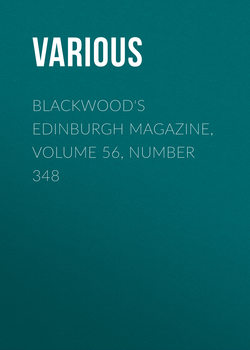Читать книгу Blackwood's Edinburgh Magazine, Volume 56, Number 348 - Various - Страница 4
POEMS AND BALLADS OF GOETHE
No. II
The Artist’s Morning Song
ОглавлениеMy dwelling is the Muses’ home—
What matters it how small?
And here, within my heart, is set
The holiest place of all.
When, waken’d by the early sun,
I rise from slumbers sound,
I see the ever-living forms
In radiance group’d around.
I pray, and songs of thanks and praise
Are more than half my prayer,
With simple notes of music, tuned
To some harmonious air.
I bow before the altar then,
And read, as well I may,
From noble Homer’s master-work,
The lesson for the day.
He takes me to the furious fight,
Where lion warriors throng;
Where god-descended heroes whirl
In iron cars along.
And steeds go down before the cars;
And round the cumber’d wheel,
Both friend and foe are rolling now,
All blood from head to heel!
Then comes the champion of them all,
Pelides’ friend is he,
And crashes through the dense array,
Though thousands ten they be!
And ever smites that fiery sword
Through helmet, shield, and mail;
Until he falls by craft divine,
Where might could not prevail.
Down from the glorious pile he rolls,
Which he himself had made,
And foemen trample on the limbs
From which they shrank afraid.
Then start I up, with arms in hand,
What arms the painter bears;
And soon along my kindling wall
The fight at Troy appears.
On! on again! The wrath is here
Of battle rolling red;
Shield strikes on shield, and sword on helm,
And dead men fall on dead!
I throng into the inner press,
Where loudest rings the din;
For there, around their hero’s corpse,
Fight on his furious kin!
A rescue! rescue! bear him hence
Into the leaguer near;
Pour balsam in his glorious wounds,
And weep above his bier.
And when from that hot trance I pass,
Great Love, I feel thy charm;
There hangs my lady’s picture near—
A picture yet so warm!
How fair she was, reclining there;
What languish in her look!
How thrill’d her glance through all my frame!
The very pencil shook.
Her eyes, her cheeks, her lovely lips,
Were all the world to me;
And in my breast a younger life
Rose wild and wantonly.
Oh! turn again, and bide thee here,
Nor fear such rude alarms;
How could I think of battles more
With thee within my arms!
But thou shalt lend thy perfect form
To all I fashion best;
I’ll paint thee first, Madonna-wise,
The infant on thy breast.
I’ll paint thee as a startled nymph,
Myself a following fawn;
And still pursue thy flying feet
Across the woodland lawn.
With helm on head, like Mars, I’ll lie
By thee, the Queen of Love,
And draw a net around us twain,
And smile on heaven above.
And every god that comes shall pour
His blessings on thy head,
And envious eyes be far away
From that dear marriage-bed!
There is abundance of spirit here. For once, in describing the battle and fall of Patroclus, Goethe seems to have caught a spark of Homeric inspiration, and the lines ring out as clearly as the stroke of the hammer on the anvil. There is no rhyme in the original, which, we confess, appears to us a fault; more especially as the rhythm is that of the ordinary ballad. We have, therefore, ventured to supply it, with as little deviation otherwise as possible. It is for the reader to judge whether the effect is diminished.
Our next selection shall be “The God and the Bayaderé”—a poem which is little inferior in beauty to the Bride of Corinth, and which, from its structure, opposes to the translator quite as serious a difficulty. The subject is taken from the Hindoo mythology, and conveys a very touching moral of humanity and forbearance; somewhat daring, perhaps, from its novelty, and the peculiar customs and religious faith of an eastern land, yet, withal, most delicately handled.
